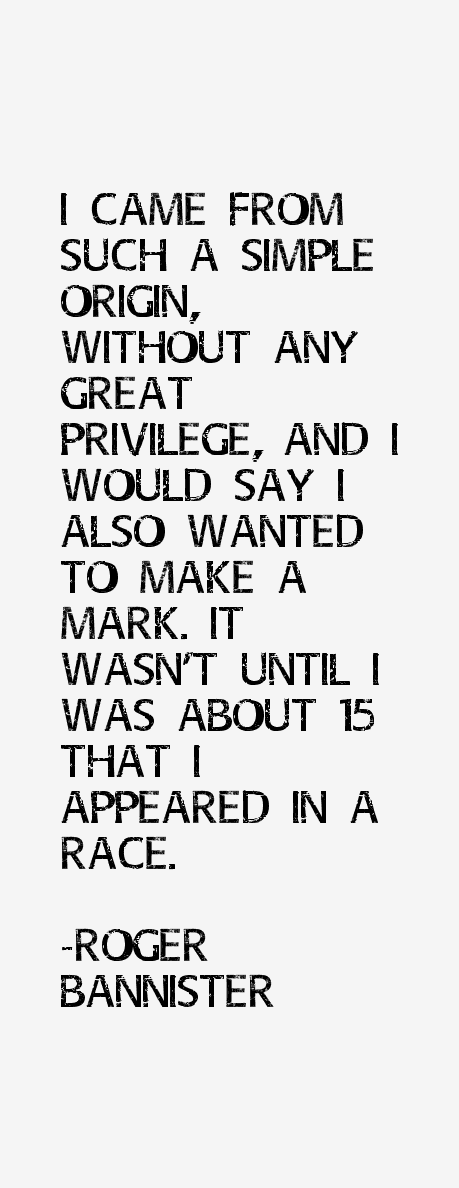Roger Bannister Quotes & Sayings (Page 2)
Roger Bannister quotes and sayings page 2 (96 year old athlete). Here's quote # 11 through 20 out of the 35 we have for him.

“I came from such a simple origin, without any great privilege, and I would say I also wanted to make a mark. It wasn't until I was about 15 that I appeared in a race.”

“Life was very simple. My parents had come from the North of England, which is a fairly rugged, bleak, hard-working part of England, and so there was not the expectation of luxury.”
“When I was about to break a world record and become well known, my mother used to say that for her the important thing was for me to become a doctor - a career which had not been possible in her generation and in her society. Sport was something to be set aside.”
“There were only 170 neurologists in Britain then and, whether spoken or unspoken, there was this insidious feeling. How can Bannister, a mere athlete, probably spoilt by all the publicity and fame, dare aspire to neurology? But I'd done a lot of research, and my academic record was very good.”
“I had always wanted to become a neurologist, which is one of the most demanding vocations in medicine. Where do you stop, after all, with the brain? How does it function? What are its limits? The work seems unending.”

“I enjoy singing, and the instruments which truly move me are the horn, the trumpet and the cello.”
“It's a question of spreading the available energy, aerobic and anaerobic, evenly over four minutes. If you run one part too fast, you pay a price. If you run another part more slowly your overall time is slower.”

“Athletics is a luxury.”
“I was always a great bundle of energy. As a child, instead of walking, I would run. And so running, which is a pain to a lot of people, was always a pleasure to me because it was so easy.”

“My concentration was really on getting to university and becoming a doctor. My parents let me know that school marks were important. Achievement was something which came by hard work.”
Roger Bannister Quotes Rating
No Ratings Yet
Leave A Comment
























